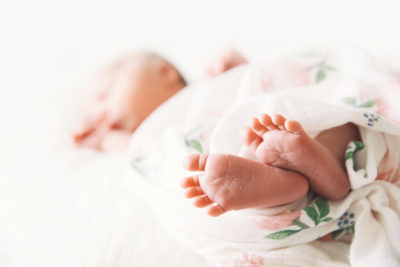If you have been affected by poor maternity treatment - Support is at hand
CALL 0800 083 5500

Following an independent review at East Kent Hospitals, a new report into the maternity services at East Kent Hospitals has been published.
NHS maternity services have been under scrutiny in 2022. The final publishing of the Ockenden report into maternity care at Shrewsbury and Telford NHS Trust revealed shocking failures and avoidable deaths and injuries to babies. Donna Ockenden is also currently investigating the maternity services at Nottingham Hospitals Trust.
Now, following an independent review, a new report into the maternity services at East Kent Hospitals has been published.
The review, led by Dr. Bill Kirkup, looked at the maternity services at both hospitals within the trust, QEQM and William Harvey Hospital (WHH) in Ashford between 2009 and 2020.
They outlined several key failings within the trust, including a pattern of poor care, poor behaviour, poor communication with parents, and a what one assessor described as “the worst culture I’ve ever seen.”
In its findings, the report determined that 45 of the 65 baby deaths within the period, could have had different outcomes if guidelines were followed.
“Certain groups deliberately assigned high-risk cases to less skilled midwives, seriously compromising patient safety.”
The death of a seven-day-old baby in 2017, exposed failings at The Queen Elizabeth the Queen Mother Hospital in Margate (QEQM) and was the catalyst for the latest investigation.
The child’s death was ruled as “wholly avoidable” following an inquest. Initially, the hospital described his death as ‘expected,’ before having to apologise and they were fined £733,000 after being prosecuted by the Care Quality Commission (CQC).
https://blackwaterlaw.co.uk/birth-injury-to-baby-sparks-concern-at-maternity-unit/
The report outlined gross failings in teamwork amongst midwives and between midwifery and obstetrics. Divisions and ‘cliques’ amongst midwives led to claims of bullying, a ‘culture of tribalism’ amongst the healthcare professionals in the maternity unit.
This led to unsafe practices going unnoticed and poor behaviour being observed by pregnant mothers during labour.
The report identified instances where certain groups deliberately assigned high-risk cases to less skilled midwives, seriously compromising patient safety.
The report noted examples of uncompassionate care on the ward. Examples were recorded of seemingly genuine concerns or questions being answered with little care or being dismissed entirely.
One quote read, “A woman who asked for additional information on her condition during an antenatal check was dismissively told to look on Google.”
Failing to listen to mothers’ concerns sometimes led to serious injuries and stillbirths. In one example, a mother arrived at the hospital after suspecting her waters had broken. She was sent home and told to return on her induction day a week later. She phoned the hospital after 4 days explaining she noticed reduced baby movements but was again told to wait. When she attended her induction day, the baby’s heartbeat could not be found.
Within the damning report, several missed opportunities were outlined within the trust and the NHS, which trust leaders should have reacted to.
An internal report in 2010 examined maternity care within the trust and highlighted incidents of suboptimal care. The outcome of the review included recommendations for improved care and standards, however, the 2022 review team could find no evidence that these were ever implemented.
CQC reports in 2013 and 2014 raised concerns about the trust regarding its maternal units, outlining similar cultural and standards of care problems that this latest report has exposed. The Kirkup report noted the disappointing reception of the 2014 CQC report, “the Trust went through every line, every word of [it] and came up with hundreds of challenges to the report, grammatical, spelling … rather than actually going to the essence of the report and seeing ‘what do we do’”.
Dr Kirkup’s review team also made a note of wider maternity scandals in the country, such as the Morcombe Bay investigation in 2015, and accused the trust of not learning from it. Instead, it commissioned its own report following the news of Morcombe Bay and deciding there were no similarities with itself.
The accounts from families and mothers make for the most damming reading of the report. There are countless examples of poor care, women not being listened to and tragic consequences.
Perhaps most shocking is the hospital’s apparent lack of awareness of when a tragic incident had occurred. More than one account of mothers being placed on wards with new mothers and their babies, having just lost their own. One mother explained, “Spending about 24 hours on the labour ward listening to other babies crying was hell on earth.”